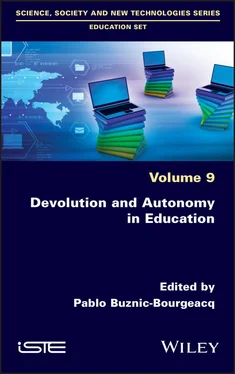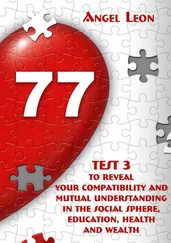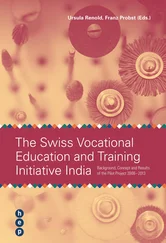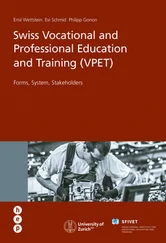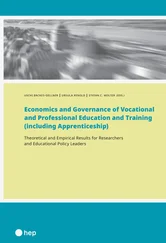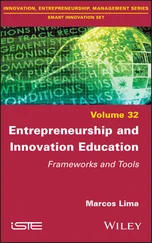The need to leave some responsibility to the learners is obvious and shared today, as it has been for many philosophers of education and for many pedagogues and pedagogical movements in the past, long before the concept of devolution was introduced. Hubert Vincent shows this in greater detail in this book using as a basis the proposals of Montaigne and Alain. Moreover, we would probably find in almost all the actors and thinkers in education, affiliated with the qualifier “pedagogue”, an idea, a project or simply a sensitivity that evokes the process of devolution. It is not a question here of rewriting the history of pedagogy through the filter of the concept of devolution. However, by way of introduction, a brief but fulfilling stop can be envisaged. Indeed, an elegant connection was made by Alain Marchive between Jean-Jacques Rousseau and Guy Brousseau, going D’Émile à Gaël (Marchive 2006). The reader is invited to browse through this text and its sources, simply by including here a few excerpts from the writings of the two authors put in parallel.
As a result, when Jean-Jacques Rousseau writes “keep the child in the sole dependence of things, you will have followed the order of nature in the progress of his education” (Rousseau 1966, p. 101), or “do not give your pupil any verbal lesson; he should only receive experience from it” (Rousseau 1966, p. 110). Guy Brousseau emphasizes that it is necessary to “propose to Gaël suitable didactic situations where knowledge is not to be taken from discourse or from the teacher’s desire, but from a relationship with the environment” (Brousseau 1980, p. 124). Jean-Jacques Rousseau reminds us that it is not a question of letting the child construct knowledge according to his or her contingent encounters with the environment: “no doubt he should only do what he wants; but he should only want what you want him to do; he should not take a step unless you have foreseen it” (Rousseau 1966, p. 150). In contrast, Guy Brousseau affirms the resolutely active dimension of the teacher: “the teacher proposes a game, the didactic situation, i.e. the rules of the child’s interactions with a system – a problem situation” (Brousseau 1980, p. 126). Finally, when Jean-Jacques Rousseau emphasizes the tension inherent in this active posture of one subject aiming at the activity of another, he refers to the invisibility of the didactic intention (“he learns all the better as he sees nowhere the intention to instruct” (Rousseau 1966, p. 149)), Guy Brousseau subjects it to disguise: “knowledge and the project of teaching will have to advance under a mask” (Brousseau 1998, p. 73). With Émile and Gaël, Jean-Jacques and Guy, it seems that the subjects of devolution have been sharing their lives for a long time, even when the horizon of the transmission of knowledge seems to draw different paths for them.
It is then necessary to be able to take a step back to refine the understanding of the specific scientific and social stakes of the concept of devolution, as it has emerged in the didactic field; all the more so to characterize and valorize its contemporary stakes. These specific stakes seem to us to be strongly attached to the specific sensitivity of this didactic field. Generally speaking, it can be condensed into an importance attributed to the fields of knowledge specifically taught and can be found amongst almost all didacticians. This can be ascertained from the most notable evocations of this sensitivity, from the early years – “a responsibility with respect to the content of the discipline” (Martinand 1987, p. 24) – to the present day – “the importance of content and disciplines“ (Reuter 2019, p. 36), or even to the point of having a bit of fun with it collectively – “a passionate epistemological, cultural and political fetishism towards the discipline” (Chevallard 2007, p. 18), and then to put to work, with all the didacticians, epistemological rules, anthropological structures, social configurations, political games and psychic constructions that support these specificities. This attachment to the specificity of what is taught is in itself interesting to think about, in the continuity of pedagogical traditions inspired by questions of transmission, inasmuch as it is consubstantial with didactics and is thus evidence of a specific way of thinking about education and, in particular, autonomy. By extension, we can consider that in some way every didactic approach is part of a passionate attachment to normativity, and that the world of didactics begins where a subject will “use the normative power of something so that someone becomes, or more simply, is autonomous” (Buznic-Bourgeacq 2019, p. 241). It is by entering through norms, through institutions, through subjection, through the pre-existing objects of the world that autonomy will be made possible. Alain already said, as Hubert Vincent shows in this work, that the child should be forced to try or to take the initiative; a formula that is certainly paradoxical, and which condenses Guy Brousseau’s idea supported by the concept of devolution.
The didactician then finds their place and, in devolution, their specific stake: it is necessary to study in detail the transmitted objects and the actual activity of a subject engaged by these objects in order to make another subject happen. In other words, it is necessary to analyze precisely what is devolved, what the objects of devolution are, and it is necessary to closely study the activity of the subject being devolved and the objects that the tutor themself manipulates to deploy their activity of devolution jointly with those to whom it is addressed. This is what the present work proposes investigating in an original form.
1.2. Problematization; subjects and objects of devolution: educating and disciplining
1.2.1. Objects of devolution and disciplines
Since its introduction in didactics of mathematics, the concept of devolution has been given a variety of objects. Guy Brousseau, for example, envisaged it in the form of stages of devolution (Brousseau 1998): devolution of the rules of the game, the finality of the game, the cause and effect link, the anticipation of the solution, the formulation and so on (Brousseau 1998). If we set aside for a while the temporality underlying this diversity, we then find ourselves faced with the multiplicity of what can be devolved in a teaching relationship. We can then immediately see that “making people accept responsibility for a learning situation (adidactic) or a problem”, to use the original formula of devolution (Brousseau 1988, p. 325), is to make people accept many things, sometimes heterogeneous. Between accepting responsibility for the rules of the game for learning and responsibility for the formulation of knowledge, or even for the flavor of knowledge (Astolfi 2008), there is a world of difference. If we step outside the Brousseau-type frameworks and formulations, or even their mathematical background, the extent and polymorphism of what can be transferred under the responsibility of the learner becomes even more monumental. If only from an epistemological point of view, the object of devolution can navigate from the empirical sensitivity of the experimental scientist to the bodily sensation of the top athlete, from the controversial approach of the analytical philosopher to the creative attitude of the impressionist artist, from the political commitment of the critical sociologist to the meaningful listening of the psychoanalyst and so on. In order to better grasp the diversity of the objects of devolution, it would seem judicious to cross a few disciplines. This is what this book proposes, particularly in its first part, where researchers circumscribe the objects of devolution attached to specific disciplinary sensibilities. For example, Jean-Philippe Georget, from mathematics, recalls the place of debate and the social aspect of evidence in the discipline and shows that they can also be devolved. Faouzia Kalali moves from mathematics to the experimental sciences by precisely underlining the importance of devolving also the experimental in these disciplines and even further devolving what constitutes them: an attitude. Benjamin Delattre invites us, from PE and the crossed contribution of philosophy and physiology, to think about the devolution of a very original object: the double of the action inherent to human behaviors.
Читать дальше
